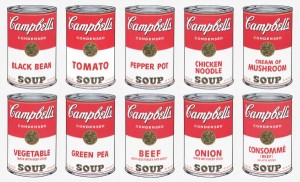I generally agree with r0b’s reasoning on the police need — or lack — for firearms. This is a mostly-empty moral panic.
But how things have changed for Greg O’Connor of the Police Association. This from 1 June 2009:
Mr O’Connor, who is currently studying policing in Scandinavia, did not support all police carrying guns but said the matter had to be looked at. […] “We said the debate should take place outside the emotion of Len Snee’s death and it’s disappointing to see that now there’s not going to be any debate there needs to be.”
A year ago Greg O’Connor was careful to frame the Police Association response in this way. He repeatedly said he didn’t want to arm all officers, he just wanted “a debate”, and one which would take place in the cold light of reason rather than as a knee-jerk in the aftermath of a police shooting. That’s a mature and responsible position. But even though the debate has not really occurred in the intervening year, his position has congealed — or perhaps he now just feels more at liberty to express it — into “all guns, all the time”.
What’s changed in the past year? The agenda has changed, that’s all: how firearms are framed in the public discourse about policing. Any time a firearm is used — regardless of the outcome — it’s a big media deal. Recent events such as the Urewera Terra raids of October 2007, the retrial of David Bain, the story of a large number of dogs being “massacred” using a firearm, and of course a number of police shootings have imprinted the prominence of firearms as public menace on the public consciousness. This has progressed alongside a police and crime-reporting discourse which has as its basic theme the notion that our plucky boys and girls in blue are under constant attack from all sides. Contrary to O’Connor’s noble aim, there has been no meaningful debate about arming police. This fact suits his arm-the-cops purposes, and it’s now clear that those cries for a debate, and the appearance of a debate within the Police, were made with the primary purpose of simply keeping the issue primed and on the public agenda. It’s lurked there, undebated, for a while, and with these most recent events it’s moving rather rapidly closer to actually happening. That’s a dangerous way to set policy.
Although I accept this is a contentious position, I generally believe that we need to trust the operational discretion and instincts of frontline police staff, as long as we have tough and independent disciplinary oversight as to their policy, and conduct in implementing that policy. On this basis, I’m not categorically opposed to the notion of police vehicles containing a lock-box with firearms in it, which police can use in accordance with firm and well-documented policy in light of the tactical circumstances in which they find themselves. But I would say that this isn’t very different to the current status quo, and the use of firearms must not be left to the sole discretion of an individual officer. The deployment policy and tactical decisions to deploy must be matters for which police command can be held accountable, for which the police as an organisation are responsible.
But what I’m more interested in is a public debate on this, and other policing matters. We really need one.
L

